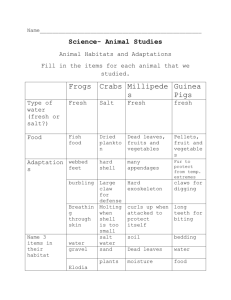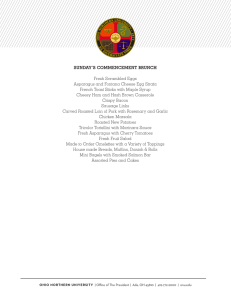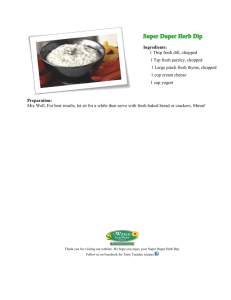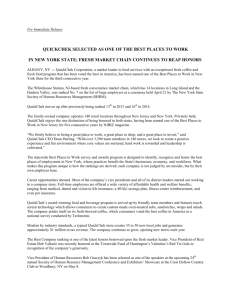Fruit and Vegetable Producers Should Pool Resources for Promotion
advertisement
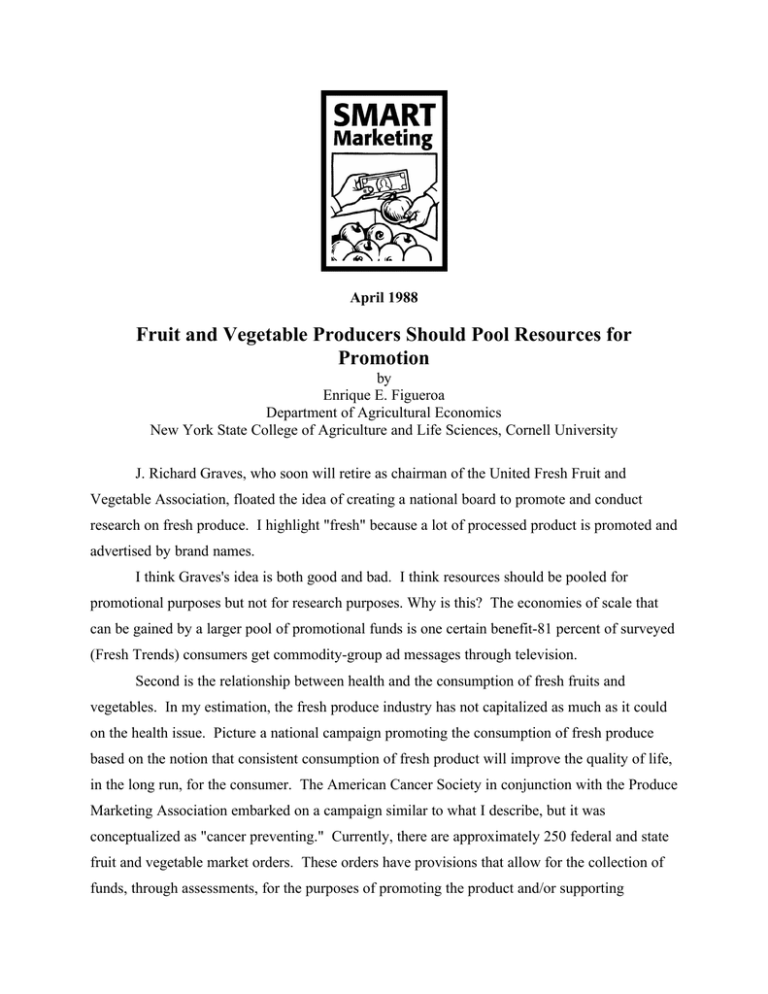
April 1988 Fruit and Vegetable Producers Should Pool Resources for Promotion by Enrique E. Figueroa Department of Agricultural Economics New York State College of Agriculture and Life Sciences, Cornell University J. Richard Graves, who soon will retire as chairman of the United Fresh Fruit and Vegetable Association, floated the idea of creating a national board to promote and conduct research on fresh produce. I highlight "fresh" because a lot of processed product is promoted and advertised by brand names. I think Graves's idea is both good and bad. I think resources should be pooled for promotional purposes but not for research purposes. Why is this? The economies of scale that can be gained by a larger pool of promotional funds is one certain benefit-81 percent of surveyed (Fresh Trends) consumers get commodity-group ad messages through television. Second is the relationship between health and the consumption of fresh fruits and vegetables. In my estimation, the fresh produce industry has not capitalized as much as it could on the health issue. Picture a national campaign promoting the consumption of fresh produce based on the notion that consistent consumption of fresh product will improve the quality of life, in the long run, for the consumer. The American Cancer Society in conjunction with the Produce Marketing Association embarked on a campaign similar to what I describe, but it was conceptualized as "cancer preventing." Currently, there are approximately 250 federal and state fruit and vegetable market orders. These orders have provisions that allow for the collection of funds, through assessments, for the purposes of promoting the product and/or supporting research on the product. I could not identify the dollar amount collected annually by these 250 market orders, but my guess is that it is a considerable amount. Third, the issue of pesticides and/or chemicals on fresh produce will not go away. The fresh produce industry faces a significant challenge in educating the public about the use of pesticides. This issue is common to almost everyone (except organic produce growers) producing fresh fruits and vegetables in the U.S. or other countries. A unified and concerted effort to educate the public would not only erode the possibility of diminished demand for fresh produce, but could likely increase demand. I think a national research effort will not work for the following reasons: Climatic requirements for production vary significantly across the country, making it difficult to set priorities about which climatic conditions should be used for research. The land-grant university system continues to do a very commendable job addressing fruit and vegetable production research. I do not believe a national board would improve the formulation of a national research agenda. Establishing a national fresh produce promotional board would require significant cooperation and foresight by all groups involved. For example, arrangements, both legal and functional, would need to be developed to allow for the expenditure of market order assessment funds on "generic produce promotion." Secondly, arriving at a comfortable contribution would be a difficult decision. Should it be an across-the-board percentage of total assessment funds? The short-run costs of creating a national produce promotional board could be out-distanced by the long-run gains.


